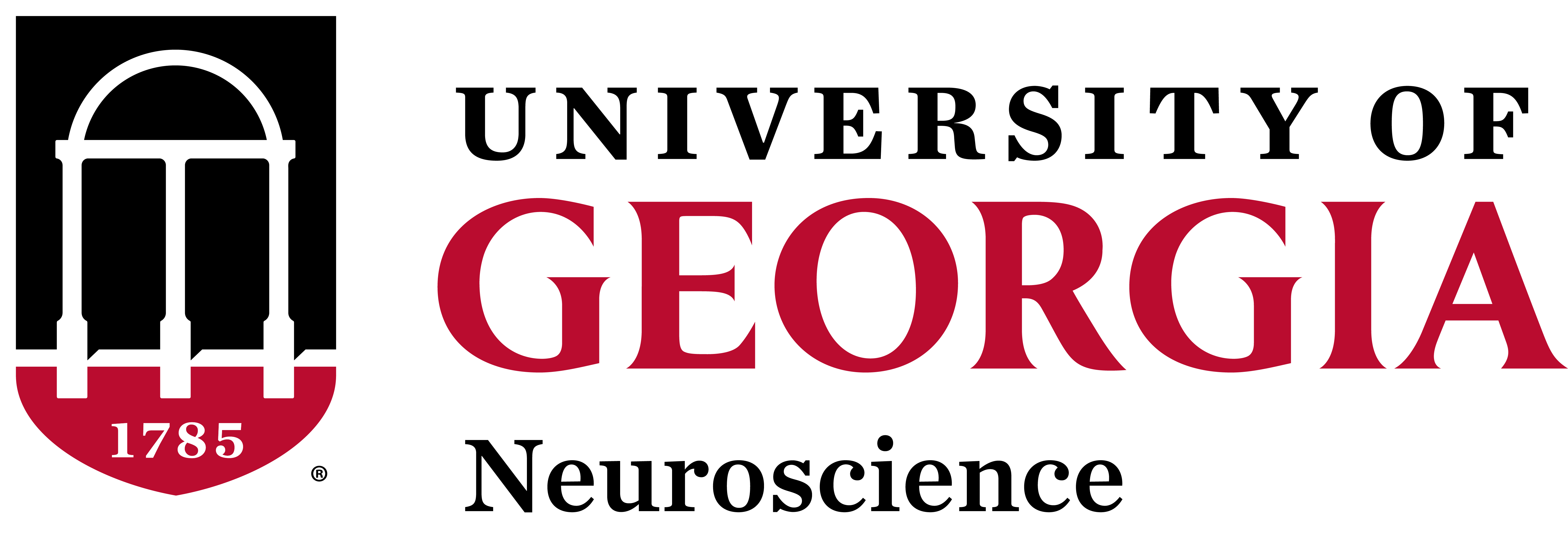Frequently Asked Questions
- What degree will I earn?
The Interdisciplinary Neuroscience PhD is a tier one program in Integrated Life Sciences (ILS), which is a portal to multiple graduate programs at UGA. After a semester of research experiences and coursework under ILS, you select a thesis advisor and become affiliated with your advisor’s home graduate program from which you ultimately receive your PhD degree. You will graduate with a PhD in Neuroscience. - Who will be on my graduate advisory committee?
Within the Neuroscience program, which is housed in the Biomedical and Health Sciences Institute, the graduate advisory committee will be composed of faculty from various departments. In consultation with your advisor, you will select committee members who can best assist you with your graduate training and research. Committee members need not be participating members of the ILS program. - How will I be supported during and after the first year?
Neuroscience students within the ILS program receive full funding for the first semester with no teaching obligation. Funding in future semesters may be in the form of a research assistantship (RA), teaching assistantship (TA), intramural or extramural fellowship, or a combination of these funding mechanisms. RA support is typically the main mechanism; over 80% of ILS faculty have grant support in any given year. Stipend support in years 2 through 5 is guaranteed at the standard level of the graduate program chosen for thesis research. Tuition is remitted for all ILS students in Year 1, and this continues for the duration of the degree program as long as the student is supported by RA or TA. - Will I be expected to teach?
Development of instructional skills is an important part of your graduate education and training. While there are no teaching requirements for the first semester of the ILS program, your home department may have a teaching requirement and your advisor may require you to serve as a teaching assistant at some time during your graduate program. This is a question that should be explored with all potential advisors. - Are international students eligible for the Neuroscience program?
Neuroscience is open to all international students holding degrees from accredited undergraduate institutions as long as country-specific academic credentials and requirements are met. The University of Georgia, however, sets overall minimum requirements for English proficiency. Applicants completing at least least one year at a U.S. academic institution may request to have the English proficiency requirement waived. Applicants residing in countries where English is not the primary language must demonstrate English proficiency. Such applicants will benefit from having a TOEFL Speak Test score of 22 or higher or an IELTS Speaking test score of 6.5 or higher. Applicants with lower Speak Test scores can be admitted, especially when the applicant demonstrates outstanding ability in another area (e.g. research, experience, etc.), but students must enroll in English-proficiency courses during their first year of study. - What happens if I am not selected for the ILS program?
ILS receives more applications from highly qualified candidates than it can support. Thus, ILS frequently refers applicants to other graduate programs based on the applicant’s stated faculty and research interests. These other programs are just as selective as ILS. If your referred application is pursued by a particular program, the program will contact you directly with additional details and to determine whether you wish to be formally considered as an applicant to that program. - How do I compare to other candidates?
Applicants admitted into ILS are identified using a variety of criteria. There is no single basis for comparison. Over the past several years, however, admitted candidates have had the following academic credentials (average; range):
GPA (4.0 scale): 3.65; 2.82-4.00
GRE Verbal: 157; 145 – 170
GRE Quant: 159; 145 – 170
GRE Analyt: 4.0; 2.5 – 6.0
TOEFL Total Score: 104; 90 – 119
TOEFL Speak Test: 24.3; 20 – 30
General Information
Neuroscience PhD Program Information
